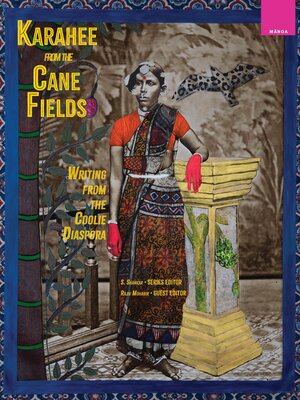Karahee from the Cane Fields
ebook ∣ Writing from the Coolie Diaspora · Mānoa: A Pacific Journal of International Writing
By S. Shankar

Sign up to save your library
With an OverDrive account, you can save your favorite libraries for at-a-glance information about availability. Find out more about OverDrive accounts.
Find this title in Libby, the library reading app by OverDrive.



Search for a digital library with this title
Title found at these libraries:
| Library Name | Distance |
|---|---|
| Loading... |
Karahee from the Cane Fields: Writing from the Coolie Diaspora unifies the literature and culture of the global South Asian Labor Diaspora and how writers live within this identity. From the history of indenture in the 1830s to the 1920s, this racialized bondage replaced the Transatlantic slave trade and branded the servants of Empire as Coolie. The word Coolie comes from the dehumanization of the people under Imperial rule, turning them into a species of Césaire's thingification.
During this period, the British displaced Indians—some by will and others by force—from the ports of Calcutta and Madras to the settlements and colonies in Fiji, Mauritius, Reunion, South Africa, Jamaica, Trinidad, Guyana, and Suriname. From these plantation communities of survival and resilience, the writers in Karahee from the Cane Fields explore their ancestral ties to land and indenture, and question what is the inheritance of the cane field, the cane-sap residue marking the descendants of this system of indenture?
It is here that emerging and less-well known voices in the field of Coolie Labor Diasporic studies gather together through poetry, fiction, nonfiction, translations, song, and graphic memoir. These narratives are more than the typical authors studied and overrepresented by academics who do not read writing from the Coolie Labor Diaspora past the 1990s. Instead of the often written about concern for their origins and cultural holdovers from their ancestral India, the writers assembled in this karahee, this mehfil of flavors, ask: What now?







